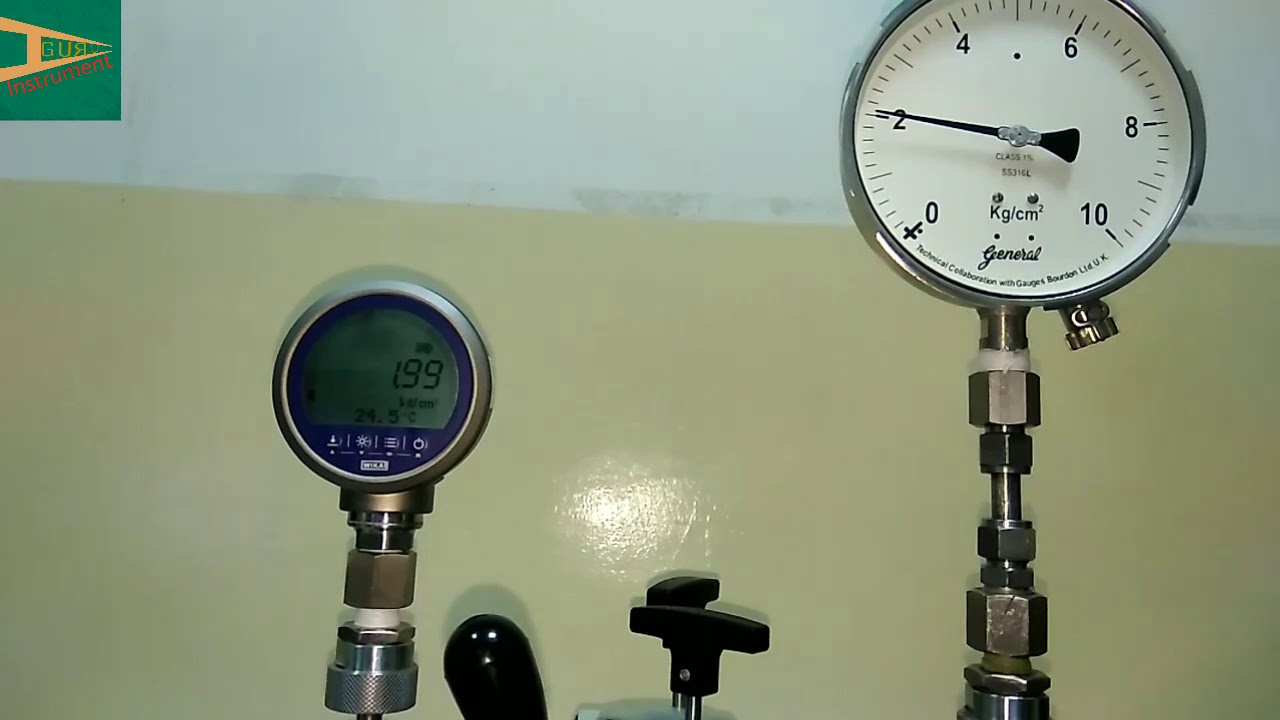![]() +971552579247 | Call Us: +971559994937
+971552579247 | Call Us: +971559994937
Presenting an Overall Idea About Calibration of pressure instruments
 Presenting an Overall Idea About Calibration of pressure instruments
Presenting an Overall Idea About Calibration of pressure instruments
Pressure instruments are those which come useful while you are dealing with a system under pressure. Through scientific instruments, you can easily monitor, measure, and record pressure values. Transmission of pressure is also possible through the instruments. Several types act as a recorder to provide actual values. The sensing technology used in the pressure instruments allows it to control the input and output signals. The most common pressure instruments that you can see in most working sectors and laboratories are those using MEMs or microelectromechanical systems.
Concept of calibration: Before getting into the calibration process of the pressure monitoring instruments, first understand the concept clearly. Calibration as a term defines comparing a standard measurement accepted universally to that of a specific instrument. To define simply, calibration is the standard evaluator which leads to determining the accuracy. An ideal calibration result is 3:1, where the numerator denotes the standard part, and the denominator indicates the specific instrument.
What is the procedure?
Instrument calibration is a vital process to ensure the accuracy of the concerned device or instrument. Calibration deals with the sample obtained from the instrument and compares it with the standards. The sample from the concerned instrument gets taken from an acceptable range with specified factors. It is the basic outline of the process, but the details vary depending on what instrument you are using. The result that you obtain establishes a link between the practical outcome and the ideal one. In most work fields, calibrating an instrument often plays a crucial role in determining the workability of the concerned instrument or equipment.
What makes calibration so important?
If you want to understand the significance of calibrating an instrument, first, you have to focus on the operational factor of the concerned unit. The instrument in use can play a crucial part in establishing any other system or its associated parts. Thus, if you do not have a clear idea about the instrument's potential and its accuracy, the effort gets wasted. It is the prime reason why calibration plays a superior part, and the devices that can calibrate are so important.
Need for calibration
Calibrating the pressure instrument is very important for practical concerns. As you know, with growing time, any device that measures critical measurements like pressure or electricity lacks functioning ability. The results that you obtain through the devices are no more accurate and defer to some extent. Thus, by calibrating the instruments, you get a fair idea about the functional capacity. Also, in cases of repairing an instrument, calibration acts as an indicator of whether the device is working fine or not. It saves a lot of risks and hazardous conditions by adapting the preventive measures through calibration.
Coming to pressure calibration
You should perform calibration of your pressure monitoring instruments primarily three times.
- Calibrate it as per the recommendation of the manufacturer.
- To avoid any functional gaps and understand the correctness after repair work.
- It is a good practice to calibrate in periodic intervals with a good quality calibrating device for pressure instruments.
Significance and utility
Pressure calibrators have a common role and a very important one in different laboratories and research centers. Laboratories perform high precision evaluation tests to ensure the capacity of military, scientific and other devices. The calibration process utilizes the fundamental pressure standards, which are valid universally. With the modern escalation in scientific evolution, the calibrators have become easy to use and move. It has simplified the mobility aspect for which onsite requirements are now easier to carry out. These devices have reduced time and resources by bringing convenience to the overall performance.
Role of the instrument
Now that you have recognized the utility of the calibration proves for pressure instruments, shift the focus to the calibrator. It is quite evident that without the right calibrator, you cannot verify the accuracy. Thus, alongside the factors that impact the process, you should also look after the calibrator capacity. The manufacturing aspects and designing mechanisms define a pressure calibrator's ability to detect the accuracy of another device.
Factors that can impact
Besides checking that the source that manufactures the calibrator to ensure the right outcome, keep a note of the influencing factors. Even if your device works perfectly, the alterations in external factors can create a disturbance. Among these factors, the prime ones to notice are:
- Calibrator values, formulation tolerance: Different pressure calibrators have a different capacity to recognize the accuracy ratio. If you do not have a lucid idea about it, the result is not valid and effective to carry out other operations grounding on it. Also, consider the tolerance of the calibrator as it varies with each manufacturing resource.
Evaluate accuracy before you buy
As the pressure calibrators determine the accuracy of measurement, it is vital to check if the calibrator is apt for it. Always go for a reputed resource to buy such critical instruments and ensure the precision of the outcome.
Popular Tags
Recent Blogs
- What is the Optical Spectrum Analyzer used for?
- How to choose the right splicing machine?
- How to select and use an OTDR
- What is an oscilloscope? Why is it important?
- What is a Fiber Cable blowing machine? Why is it important?
- What is a RF Spectrum Analyzer & What Does it Do?
- All You Need to Know About Cable and Antenna Analyzer
- Radio Frequency Testing – An Outline About the Basics and More
- An Overall Synopsis of 5G Network Testing
- What makes Insulation Testing such a crucial part of an electrical setup?
